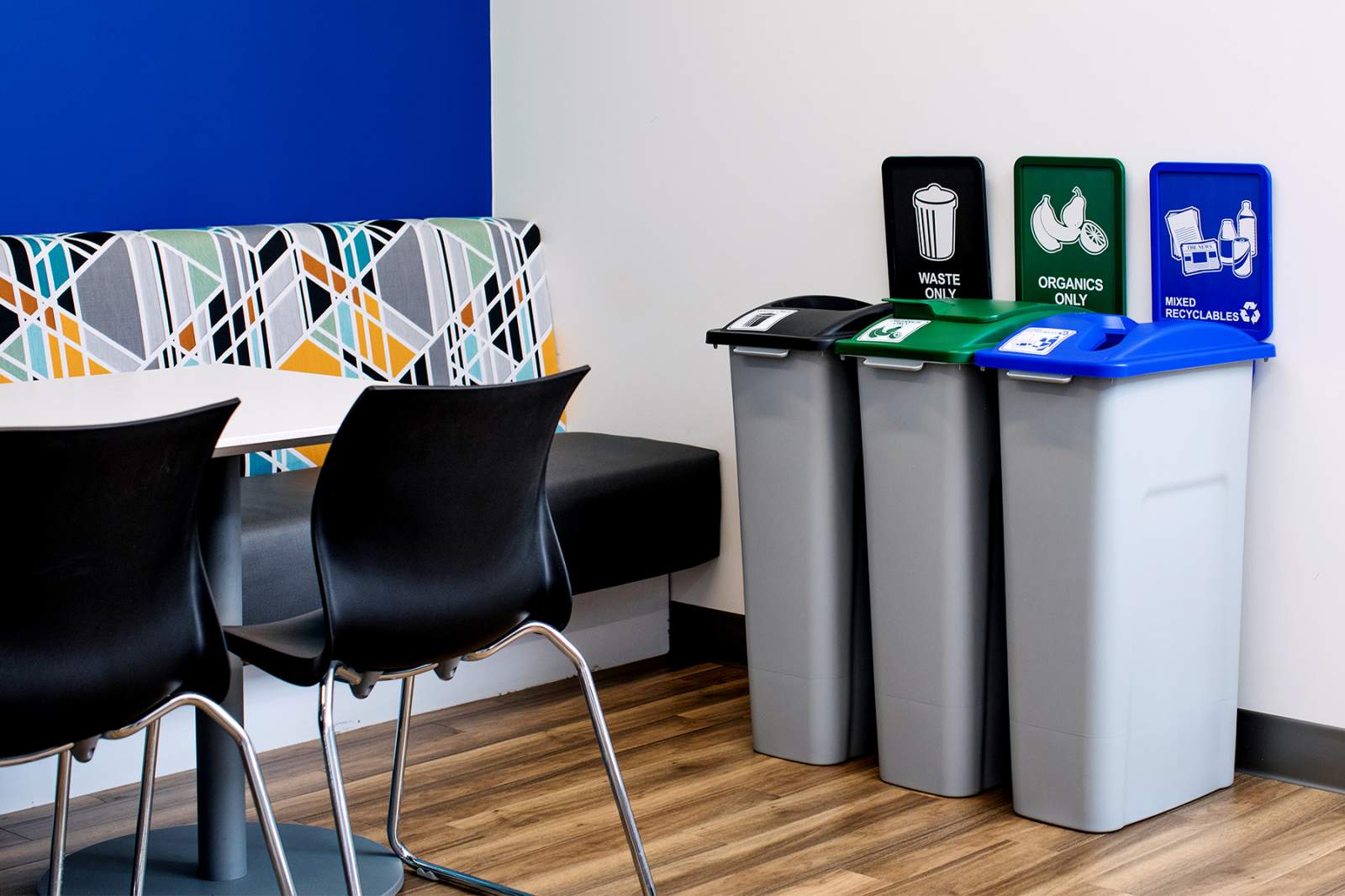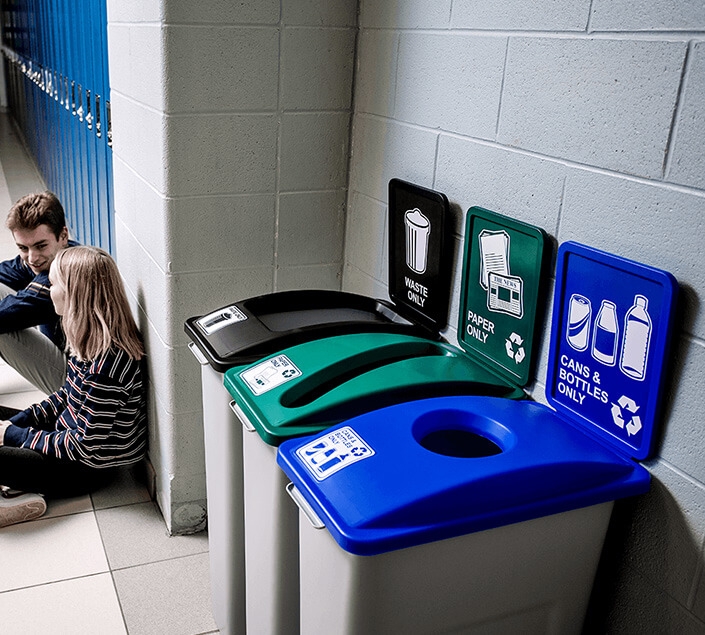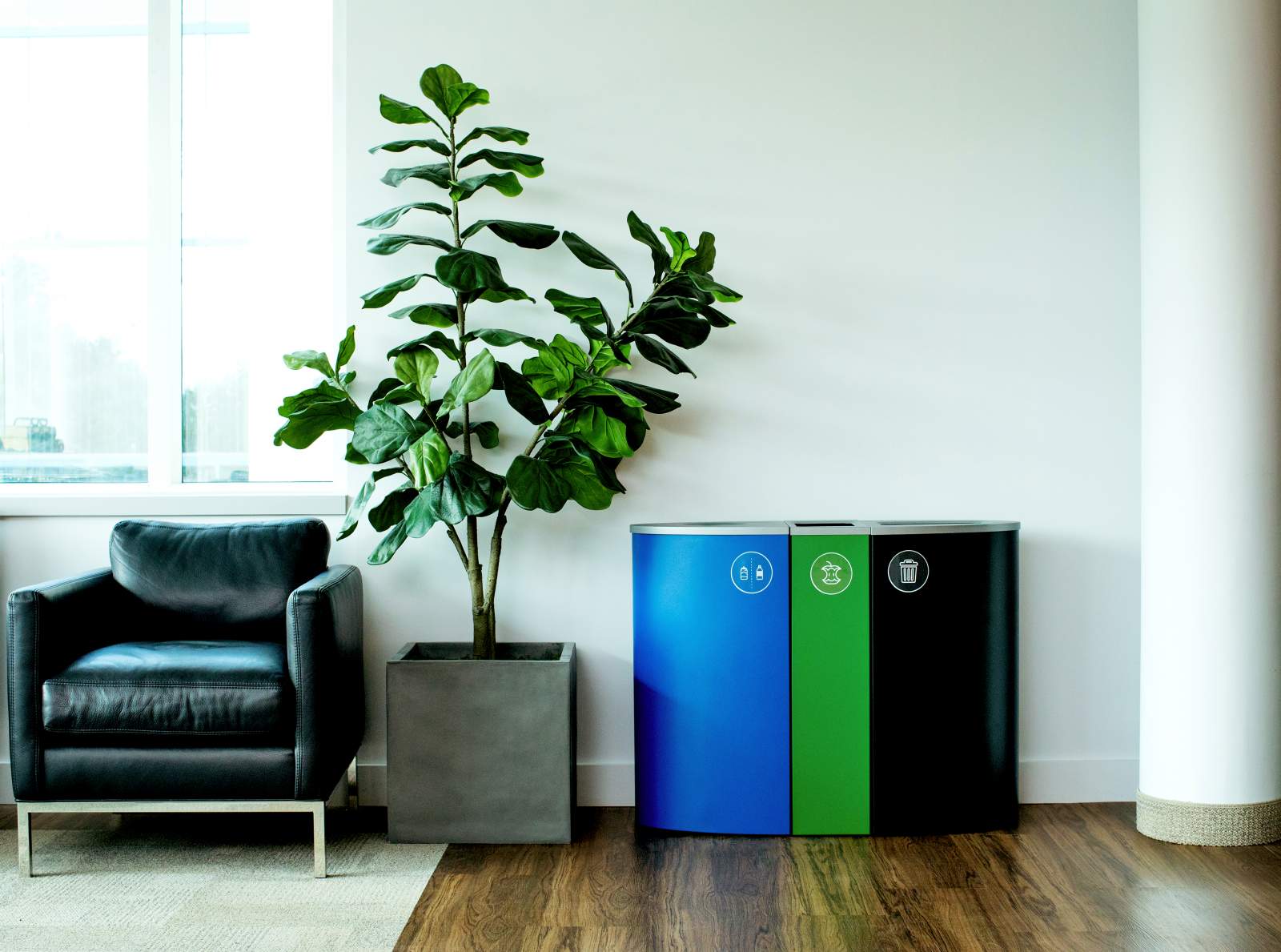To end our topic of the month, Successful Organic Collection, let’s take a look at the new Food and Organic Waste Framework introduced in Ontario.
Things are changing in the world of recycling and waste collection in Ontario, and they are changing for the better! On April 30, 2018, Ontario released their Food and Organic Waste Framework. The goal of the Food and Organic Waste Framework is to improve food and organic waste collection, limit surplus food and overall reduce food and organic waste. This new framework will provide guidelines for municipalities’ curbside programs, apartments, shopping centers, and public institutions. Ontario has recognized their food and organic waste issues and that there is a need for change. This article will go through the changes Ontario will face over the next seven years!
This framework couldn’t have come at a better time, considering the average Ontarian wastes $868 worth of food every year! This is a total of 31 billion dollars of food waste every year in Ontario alone! This act is all about reducing waste and working towards Ontario’s goal of creating a circular economy. A circular economy focuses on reusing and recycling instead of throwing out the garbage.
The Future of Organics
Within seven years, two types of municipalities will need to introduce a curbside organic recycling program. The first type is municipalities that have a population of over 50,000 people and a density of 300 people per km2. The second type is municipalities that have populations between 20,000 to 50,000 people and density of 100 people per km2.
This means that cities like Windsor, Sarina, and London will be introducing curbside organic pickup. To integrate organics pickup, changes could be made to garbage collections like schedule changes. Some cities that have already introduced organic collection have reduced garbage pickup to every other week instead of every week. Not only does this reduce cost but it encourages households to compost!
Curbside organic collection will help Ontario reduce their residential diversion rate. In 2015, the residential sector created 2,077,000 tonnes of organic and food waste and only 1,024,450 tonnes was diverted from landfills. The percentage of diversion is just under 50%, leaving lots of room for improvement! Not only will this framework increase diversion rates with the residential sector, but it will also help increase IC&C (Industrial, Commercial and Institutional) diversion rates too! The framework provides guidelines to the IC&C sector, with the goal of reducing organic waste and hopefully improve the sector’s diversion rate of only 25%. It will develop guidelines for safe food donations, introduce waste audits, help encourage waste reduction plans and many other requirements that will help contribute to reduction.
How Will Success be Measured?
With this framework, there are a few performance indicators to measure the success of the changes. Progress will be monitored by looking at the food and organic waste disposal, greenhouse gas reductions, awareness increase and many others. The growth in these topics will help determine the impact of the Organic and Food Waste framework!
If you are a citizen of Ontario, you can help this framework by keeping up to date with the changes that are coming shortly. If your town introduces a curbside organic pick up, you can do your part by learning more about it. Research the starting date and what will be accepted in your program. It’s important to do this because every organics program has their own set of rules. If your city already has an organics program be sure to use it regularly and try to reduce garbage waste as much as possible. The government may introduce an organic framework, but it’s up to its citizens to make sure that the program will be effective by using it and using it correctly!
Busch Systems is excited about these changes in Ontario and if you would like to learn more about organic recycling and food waste, be sure to check out our Resource Center's blogs and vlogs on Organics! We also have several compliant stations available either on our store or through contacting your Account Manager, Allison Smith!
Sources
- http://www.cbc.ca/news/canada/windsor/large-ont-cities-have-7-years-to-add-curbside-collection-of-organic-and-food-waste-1.4647042
- https://ero.ontario.ca/notice/013-1814
- https://www.ontario.ca/page/food-and-organic-waste-framework
- http://www.torontoenvironment.org/ontario_food_organic_waste_framework
- https://www.ontario.ca/page/food-and-organic-waste-framework#section-7
Did you find this Page helpful?

















.png)


